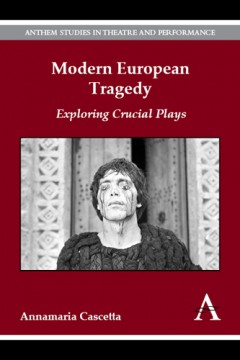Modern European Tragedy
Exploring Crucial Plays
By Annamaria Cascetta
- About This Book
- Reviews
- Author Information
- Series
- Table of Contents
- Links
- Podcasts
About This Book
The idea of the tragic has permeated Western culture for millennia, being closely bound with the concept of the limit of inescapable necessity that has been embodied in and expressed through theatre since the time of the ancient Greeks. This book addresses the question of how the twentieth century – one of the most violent periods of human history – dealt with the fundamental structure that is the tragic. Examining the consciousness of the era through an in-depth analysis of some of the twentieth century’s most outstanding texts – including works by Ibsen, Claudel, O’Neill, Brecht, Camus, Beckett, Pasolini, Grotowski, Delcuvellerie and Josse De Pauw – ‘Modern European Tragedy’ draws a vivid picture of the development that tragedy experienced during this time. Along the way, the book engages with some of the prominent currents of twentieth-century thought and philosophy that can still be found in the varied map of contemporary thought today: the ideas of modern Christianity, psychoanalysis, the theory of the Absurd, nihilism, Marxism and the acceptance of the limit. Together, analyses of these currents serve to support the book’s key avenues of investigation: its explorations of what inspired these key authors to engage with the idea of the tragic; and its explanation of why the contemporary tragic no longer bears the form of classic tragedy.
Reviews
Author Information
Series
Table of Contents
Links
Stay Updated
Information
Latest Tweets



